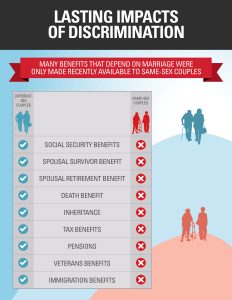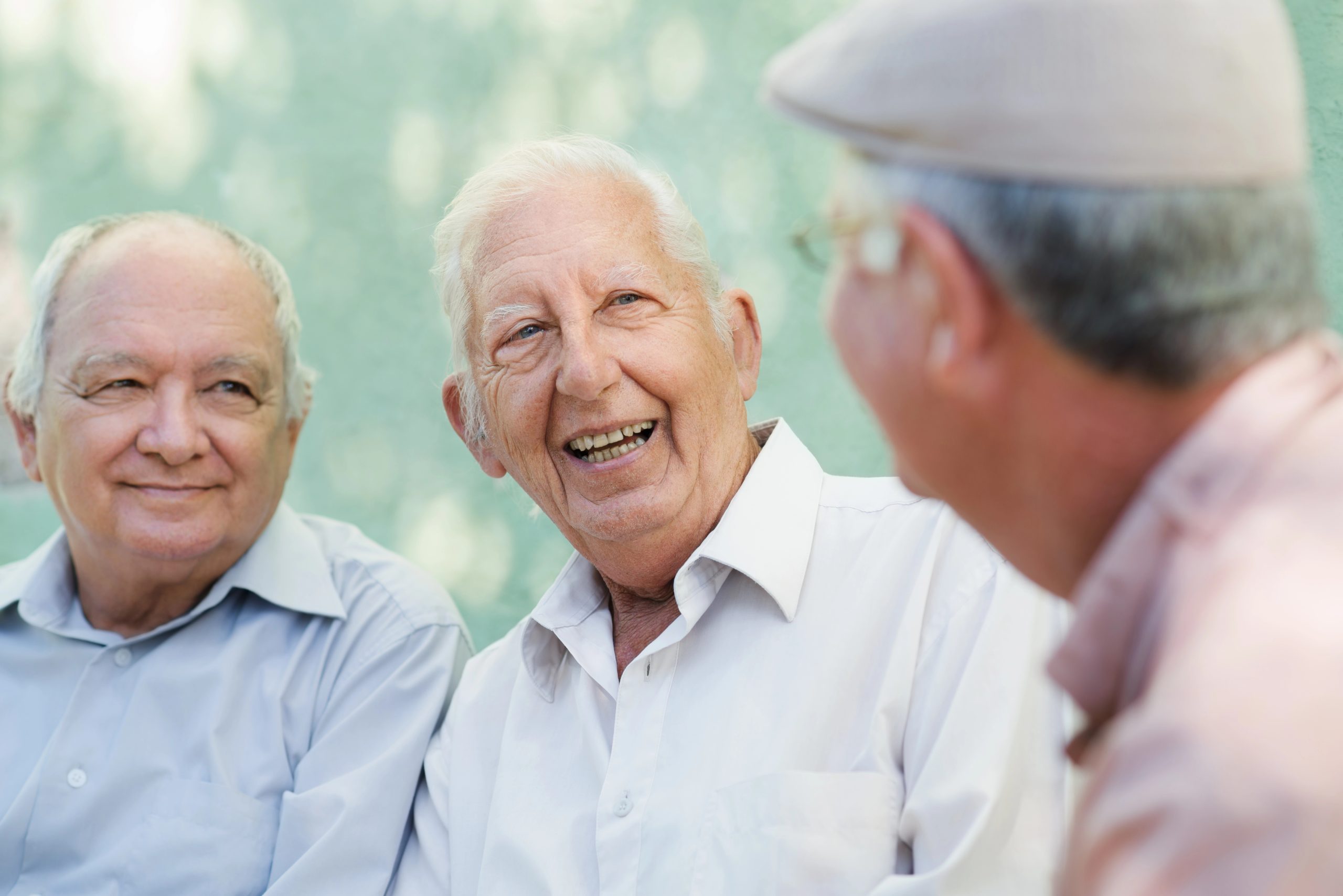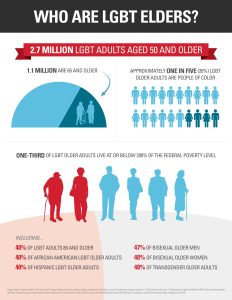As society progresses towards greater inclusivity and acceptance, it’s crucial to shine a light on the specific challenges that LGBTQ elders face as they navigate the aging process. Despite strides in LGBTQ rights, these individuals encounter unique obstacles that can hinder their ability to age with dignity and comfort.
In the Bronx, as in many other communities, efforts are underway to confront these challenges head-on. It’s an important step forward in ensuring that LGBTQ elders receive the support and care they need to live out their later years in comfort and dignity.
Key Statistics
There are approximately 2.7 million LGBTQ adults aged 50 and older in the United States, and 1.1 million aged 65 and above. Moreover, 40% of LGBTQ adults are over the age of 80. As such, this demographic represents a serious portion of our aging population. These statistics underscore the importance of recognizing and addressing the unique challenges that LGBTQ seniors face as they age.
The Legacy of Discrimination
One of the primary challenges faced by LGBTQ elders is the legacy of discrimination and marginalization they have experienced throughout their lives. Many grew up in a time when being openly LGBTQQ was stigmatized and even criminalized. This history of oppression has lasting effects, contributing to feelings of isolation, shame, and mistrust of institutions just as the time they may need to turn to these societal supports.
 Legal Restrictions
Legal Restrictions
Research has shown that LGBTQ adults, like all people, benefit from marriage and partnership in terms of resilience and protection. However, many LGBTQ elders have faced legal and societal barriers to forming and maintaining these relationships.
Until relatively recently, same-sex marriage was not legally recognized in many parts of the United States. As a result, LGBTQ elders may have been denied access to spousal benefits such as Social Security survivor benefits or pension rights. Even in states where same-sex marriage is legal, older LGBTQ individuals may have missed out on these benefits if their partners passed away before marriage equality was achieved.
Not having a recognized legal status, partners and friends face difficulty helping their LGBTQ counterparts and friends in healthcare settings. They face tough restrictions in terms of visitation and healthcare decision making.
Unique Caregiving Need
As Baby Boomers continue to age, it is critical that LGBTQ elders receive the support and care they need. Unlike their heterosexual counterparts, LGBTQ seniors are less likely to have children or spouses, and therefore less likely to have an informal support network to rely on as they age. As a result, it falls upon the community to take on the responsibility of providing competent, reliable, and compassionate care to LGBTQ seniors.
The local infrastructure must step up and provide the care and support necessary for successful aging. The local organizations for the aged need to make sure there are meals provided and visiting nurses where there is medical need. Those who can afford it often make sure to get long term care insurance so that they can get help with their activities of daily living (ADLs) when they need it.
Social Isolation
The lack of traditional family structures can leave this group particularly vulnerable to social isolation. Unlike their heterosexual counterparts, they are less likely to have children or traditional family structures to rely on for support as they age. This lack of familial support can leave them vulnerable to loneliness and isolation, especially if they have faced rejection from their biological families due to their sexual orientation or gender identity.
Social isolation is a significant issue for many LGBTQ elders. LGBTQ elders are more likely to live alone and experience fear of dying alone. Living alone also increases the risk of elder abuse, neglect, and financial exploitation.
Economic Insecurity
The lack of traditional family structure is also accompanied by more economic exposure. Older LGBTQ adults may face additional financial challenges as they age, particularly if they are unmarried or estranged from their biological families. Without spousal benefits or family support networks, they may struggle to afford housing, healthcare, and other necessities in retirement.
Support Networks
Today, it’s crucial for LGBTQ elders to receive the support they need to live out their later years comfortably. Unlike their heterosexual counterparts who are more likely to have children or spouses, LGBTQ seniors are lacking in these informal support networks.
For many LGBTQ elders, chosen families—made up of close friends and community members—play a crucial role in providing support and companionship. However, these relationships may not have the same legal recognition or protections as traditional family structures, posing challenges when it comes to decision-making, inheritance rights, and access to healthcare.
Special Healthcare Concerns
Healthcare disparities are another significant challenge faced by LGBTQ elders. Studies have shown that LGBTQ individuals are at higher risk for certain health conditions, including depression, anxiety, and substance abuse, due to the stress of discrimination and stigma.
Additionally, LGBTQ elders may encounter barriers to accessing culturally competent healthcare services. Many healthcare providers lack training in LGBTQ-specific health issues and may not be sensitive to the unique needs and concerns of LGBTQ patients. This lack of understanding can lead to subpar care and even discrimination within healthcare settings.
Healthcare Decision Making
LGBTQ elders may rely on chosen families for support, as many have experienced rejection or estrangement from their biological families. However, these relationships may lack legal recognition, leading to additional challenges in terms of healthcare decision-making and inheritance rights.
Given that 70% of individuals over 65 will require long-term care, it’s crucial to provide support and resources for LGBTQ elders, including long-term care insurance and end-of-life discussions. In fact, this group is more likely to file formal documents such as healthcare directives, living wills, and powers of attorney. That way they ensure there wishes are respected should they become incompetent.
Recommendations
As the population of LGBTQ elders continues to grow, it’s essential that we address the unique challenges they face in aging. By addressing these key challenges and implementing targeted interventions, we can ensure that LGBTQ elders are able to age with dignity, comfort, and the support they deserve.
1. Train & Sensitize:
Healthcare providers and facilities must undergo comprehensive training to sensitively address the unique needs of LGBTQ elders, from administration to frontline staff.
2. Access Healthcare:
Ensure access to healthcare for LGBTQ elders and their support networks, including legal recognition of relationships to facilitate decision-making and visitation rights.
3. Provide Culturally Compatible Healthcare:
Ensure that healthcare providers receive training in LGBTQQ-specific health issues and are sensitive to the unique needs of LGBTQ patients. Additionally, expand access to affordable healthcare services for LGBTQ elders, including mental health and substance abuse treatment.
4. Support Economic Security:
Advocate for policies that address economic inequality and provide financial support for LGBTQ elders, including affordable housing options and retirement savings programs.
5. Support Caregivers:
Caregivers of LGBTQ elders should receive training in cultural competence and specific ailments, such as HIV/AIDS, to provide high-quality care and support.
6. Foster Connections:
Recognize the importance of formal caregivers for friends in their chosen family and community who may be aging simultaneously.
David York Agency Homecare Helps LGBTQ Seniors in the Bronx
At David York Agency, we understand the many challenges and risks faced by the aging and elderly. We are dedicated to providing care to support them through all of those ups and downs. At David York Home Healthcare Agency, extraordinary service is what sets us apart from other companies in the Bronx that provide in home healthcare services.
DYA we could provide direction as to how to manage the total care of your senior loved one. Whatever your care needs, we are there for you, always striving to exceed your expectations. For more information about David York Agency’s qualified, compassionate caregivers, contact us at (718) 376-7755. A free phone consultation can help you determine what services would meet your needs. We aim to provide you and your loved one with the assistance they need. If you’d like to hear more from us, please like us on Facebook or follow us on Twitter or LinkedIn.
For more helpful tips and information, check out our blog








